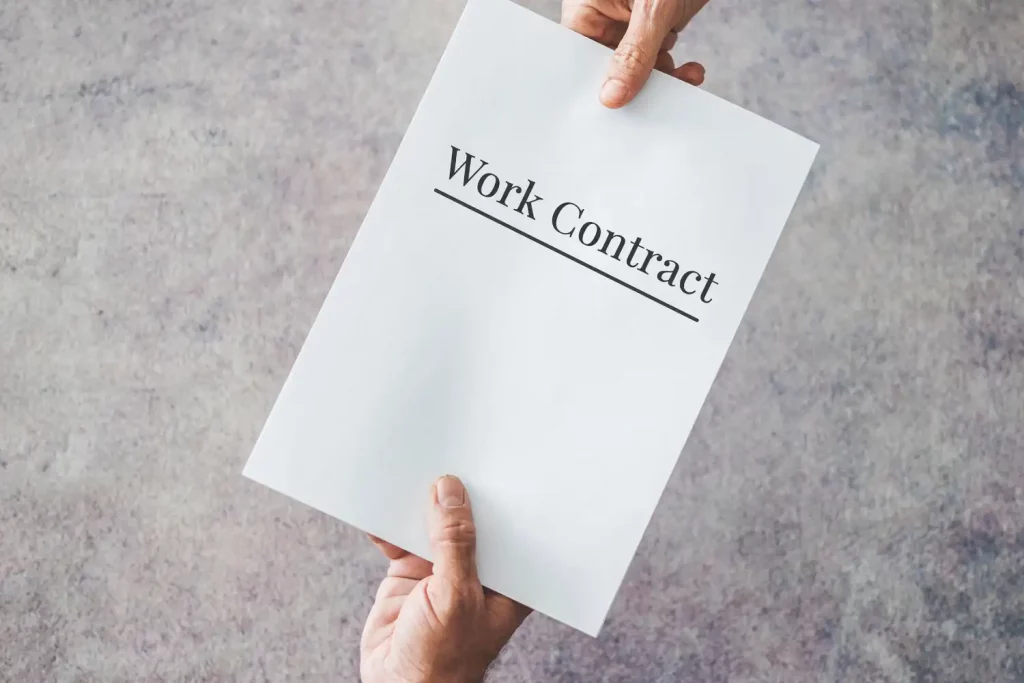Evidence gathering in employment disputes: Emails, letters & documents
Before you begin gathering evidence to support your case, it’s important to understand what you can or cannot legally take. This is particularly true of materials that your employers would argue are confidential.
This guide sets out some guidelines for you when you are searching for evidence, looking particularly at letters, emails and documents.
See our list of Helpful Guides at the end of this article for further information on collecting evidence in other formats and ways and means of collecting it.
What can happen if you take confidential information?
As indicated in the case summarised below, you can be sacked for taking confidential documents.
This case was heard in December 2010 (Brandeaux vs Chadwick). It looked at when an employee can take confidential documents from an employer and use them in an employment tribunal case. In this case, the employee had forwarded a vast number of confidential material to her personal email account. At the time there was not an existing dispute – she was simply gathering evidence to support an unfair dismissal claim. If you do this and your employer finds out, you can be lawfully sacked for gross misconduct, which is exactly what happened in the above 2010 case.
If however, there is a serious regulatory matter, such as fraud or other misconduct by your employer, then you may be entitled to take confidential documents from your employer and use them as evidence in a whistleblowing case in negotiations with your employer or in an employment tribunal.
You should never take hundreds of documents. Instead, consider which documents are most relevant and take only those. Whatever you do, it’s best to avoid copying your employer’s confidential data to your personal computer.
To overcome this, you could do something like compiling a report using the information on the system at work, without actually removing the information.
Why do you need to be careful when taking information?
Anything done on a computer or smartphone, even if deleted, can, in theory, be detected by your boss, and furthermore, they can sometimes ‘track’ what you print.
Some employers at the start of any litigation will order a forensic examination of a computer and/or smartphone to see if they can catch you out.
If you are determined to take documents, photocopying hard copies might be an option or taking screen prints or photos. Obviously, this is a matter for you and we don’t necessarily advise doing it.

Top Tips
Alex Monaco
Don’t email confidential documents to yourself
Make sure there is a regulatory breach before you copy anything
Only copy the minimum documents
What about gathering evidence after dismissal?
After you have been dismissed you have more room to manoeuvre. For example, if you still have access to the server or to emails on a smart phone, then using or forwarding data would not destroy a future case, because your employer can’t argue that it was a reason to sack you as they already have.
What’s the best way to gather written evidence?
Once you have established what type of claims you may have to base your arguments on and have a general understanding of what areas of evidence are likely to be able to support your case, the time has come to search for and secure that evidence.
Emails
The world is run on emails, countless millions pass between colleagues and companies each day. Decisions are communicated in emails; adverse comments are made in emails, so the majority of the documents in most trial bundles in employment tribunals these days are emails.
This, therefore, is logically where you should start your search when gathering evidence.
Emails that have been sent to you from within your company are the most likely emails that hold evidence you can use. You can search for these emails in your inbox, deleted items etc in the usual manner and save the useful ones either in a separate email folder or in an electronic document folder.
Gathering evidence is the easy part, preserving them in a safe place is the more complicated part.

Company email policies
Most email communications these days come with a disclaimer at the bottom explaining that the email, its contents and any attachments are the property of the company.
Furthermore, as an employee, it is highly likely that you will be subject to an email policy, a company property policy and a confidentiality policy.
These policies will state that emails are company property, may contain confidential information belonging to the company and therefore must not be removed from the company.
These policies are designed to prevent employees from taking all sorts of actions including forwarding company emails to their own private account, electronically downloading or uploading company emails, printing out emails and removing the printouts from the company premises.
There are many legitimate reasons for a company to have policies such as these; however, there is a direct conflict between such policies and your rights as an employee when gathering evidence to use for the purposes of litigation.
It is a fine balance and many employees have been subject to threats, disciplinary action and even dismissal for removing confidential emails from the company servers to their own personal email accounts.
The general rule for removing emails
Although every case is different, the general rule is that it’s best not to remove emails from the company server. In a normal case, it shouldn’t be necessary to take these steps.
For example, if you continue to remain at work and are gathering evidence for a normal case of unfair dismissal or constructive dismissal and if you don’t suspect your employer of attempting to destroy evidence, you should gather together the emails that support your case in your company inbox or store them on the company servers.
If you absolutely must take action to remove emails (if, for example, you suspect you will be suspended and not granted access to systems or that your employer is deleting evidence) then it is risky to remove confidential commercial information contained in emails or as attachments from the company servers, even if this supports your case. Examples here include price lists and client lists. This can lead to legitimate allegations that you have breached company policies and your duties of confidentiality, which will not only undermine your negotiation but could lead to disciplinary action in and of itself – as exemplified in the case mentioned above.
Exceptions to the rule on removing emails
There are nearly always exceptions to rules, however, and here is an example of a case we handled recently that demonstrates this:
Our client had retained the whole of her email inbox on her phone. She had been entitled to have this because the email system was synchronised to her phone.
The employer tried to use against us the Brandeaux case mentioned above, but because our client hadn’t done anything against company policy, she won. It was true that she should have returned the emails once she’d been dismissed, but by then the employer couldn’t argue that that was a reason for dismissing her.
The other feature of this case that distinguishes it from the Brandeaux court case is that there was a whistleblowing issue – the employer had been ‘cooking the books’ or committing corporate fraud. Therefore our client was much more likely to be treated leniently by the tribunal and allowed to use the emails which she had taken.
The same strict adherence to general rule-keeping is also unlikely to apply to standard, day-to-day communications, even if those communications are vital to your case.
For example, if your boss has used aggressive language or threats in an email, the company is going to be hard-pressed to claim that the communication contained confidential information. So, if you do send it to your own email address you will most likely be on stronger ground than if you have forwarded a list of clients or financial information.
Letters
Letters addressed to you from your employer are usually important evidence, so you must preserve them. Taking copies is sometimes a good idea so that you have spares as back up should something happen to the original.
Personal letters addressed to you are your property, therefore you are able to remove them from the office and store them at home without any issues. You should be able to locate these letters easily. If you have lost your copy then ask HR for a copy and they should provide you with one.
If you believe that there are letters in existence that support your case and you can search for these letters in a lawful manner (i.e. without breaking into colleagues’ offices or filing cabinets which is likely to lead to disciplinary allegations), then you should commence this search.
You need to bear in mind that letters that you come into contact with as part of your job are generally the property of the company and taking the original letters is likely to lead to allegations of theft of company property or misuse of confidential information.
If during your search for letters that support your case, you find evidence that you believe will support your case, the best thing to do is to take scans or copies and then replace the originals where you found them.

Documents
Documents relating directly to you such as performance reviews, sales records etc are almost always legitimate documents to use in a negotiation.
Documents you have obtained that relate to you, but are not documents that have been sent to you in the normal manner, are likewise fine to use as long as you haven’t obtained them in an unlawful manner or in breach of your employee obligations.
The same caveats regarding company property and confidential information apply to company documents: they are not your property and so removing them from the office risks disciplinary action.
If you require them for litigation and cannot preserve them in any other manner then it is more likely than not you will be protected by the law. Otherwise, you run the risks discussed above. It is important to reiterate that taking documents should be a last resort.
How can you get more information about your case?
If you have conducted a search for emails, letters and documents, but cannot find what you are looking for, you may wish to consider writing to the company (usually the HR Department) to make a formal request for the company to hand over specific documents.
The advantage of this approach is that the request for evidence will be made on a formal basis and you have acted properly in making this request. It will, however, put your employer on notice that you intend to do something that may cause them trouble.
What to ask for
If you are going to make such a request then you need to make a list and description of the documents you wish to have disclosed to you, ideally including a date (approximate is fine) when the document was created or circulated.
What not to ask for
A reasonable employer should disclose the documents to you, especially if they relate to you directly. They will almost always resist disclosing documents that do not relate to you or that they consider are nothing to do with you or none of your business.
For example, if you ask for the minutes of partnership meetings for a private partnership then you’ll be facing an uphill struggle.
What to do if your employer doesn’t give you the documents you want?
If the company refuses to provide you with the documents you want to see then you should consider either a Discrimination Questionnaire or a Subject Access Request under the General Data Protection Regulation (GDPR) 2018.
Next steps
If you’ve recently found yourself in dispute with your employer, you will need all the evidence you can get to fight your corner. Monaco Solicitors can help you select the most valuable evidence in your circumstances and also negotiate a settlement or take your claim to a tribunal if that’s the best course of action for you.
Our legal team is a well-qualified and experienced team of solicitors specialising only in employment law for employees. They are sensitive to your needs at such a time and will give you a friendly welcome and highly professional, effective service.
If you’d like a no-obligation consultation about your employment situation, get in touch via:
- our website here
- phone on 020 7717 5259
- email to communications@monacosolicitors.co.uk